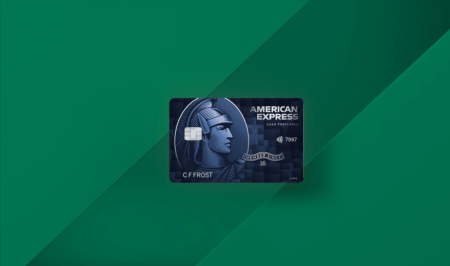Getting a new credit card can create a nice feeling of accomplishment and opportunity. Maybe it’s your first card, which can feel especially gratifying. You’ve been approved by a credit card company and issued your new card. It probably has all sorts of benefits that make it better than previous cards you may have had, for one reason or another. Maybe there are bonus points for certain purchases like gas or groceries; or the new card could offer zero-interest for a certain period of time or on balance transfers. The advantageous could be numerable.
More than likely, the way you use your new credit card will vary based on the reasons you first applied. You may be planning some large expenses – like redoing a bathroom or refurbishing an apartment – which could make 0% interest for 15 or 20 months attractive.
You may have a new job that requires a lot of travel and a new card that will allow you to maximum benefits from airline purchases. No matter why you got your new card, there are some things that should be almost universally avoided.
Balance transfers from previous cards.
Unless your new card has 0% APR and your intent is to stop using your old credit card, don’t transfer a balance from one card to another. Doing so doesn’t reflect responsible use of credit, unless transferring a balance significantly lowers your effective interest rate. It’s better for you to pay off balances. In fact, ideally, you shouldn’t be carrying a balance at all. You should be paying off every card in full at the end of each month.
Run up a large balance.
Nothing demonstrates to credit companies less ability to use credit responsibly than getting a new card and immediately accumulating a large balance. Very simply, don’t make charges to your card that you can’t afford to pay off at the end of the month. For some experienced credit card users with long credit histories, there are a couple of exceptions to this rule – including if you plan to take advantage of a low introductory interest rate to finance large expenses. Regardless, it’s a terrible idea to look at a new credit card as an excuse to go on a shopping spree.
Use a card for something other than its intended purpose.
Some people get a card to help finance large purchases, which can be beneficial in some instances for those who have demonstrated an ability to use credit responsibly. Various cards can offer 0% Introductory APR, which can be helpful for carrying a balance before later rolling any unpaid portions into line of credit or paying out of savings. If this is your intent, however, you shouldn’t spend money on a bunch of other things and not leave yourself enough credit for your intended purchases. Similarly, if you have cards that specifically provided benefits for airline purchases, groceries or gas, try to use cards in ways that match their intended benefits – that’s just a smart way to accumulate points or other rewards, and to be conscious of your spending.
Failing to pay the balance on a new card.
It’s not uncommon for people to carry a small balance on credit cards from month-to-month, but doing so is typically poor judgment. It demonstrates irresponsible use of credit, and can bring down your credit score if you carry a balance that’s too high relative to credit limit. Credit companies use this ratio, known as “credit utilization rate,” as one of the factors to establish your credit score. Always be sure to pay off your cards in full when you get a statement, especially for a new card. To keep from hurting your credit card score, you should never use more than about 30% of the credit available to you at any given time.
Cancel old cards right away.
Once you get a new card, don’t immediately cancel all your previous cards, as this can also hurt your credit score. By limiting the amount of credit available to you, you can indirectly raise your “credit utilization rate.” Besides, credit companies like to see a certain number of credit accounts open to know that you can responsibly handle credit.
Getting a new credit card, especially one with benefits that match your needs, can be an incredibly intelligent step. When used properly, credit cards can have tremendous advantages for facilitating transactions and improving your credit score over time, as well as numerous ancillary benefits. In order to make the most of any card, however, it’s important not only to use it when and how appropriate, but to specifically avoid many potential missteps including those listed above.








